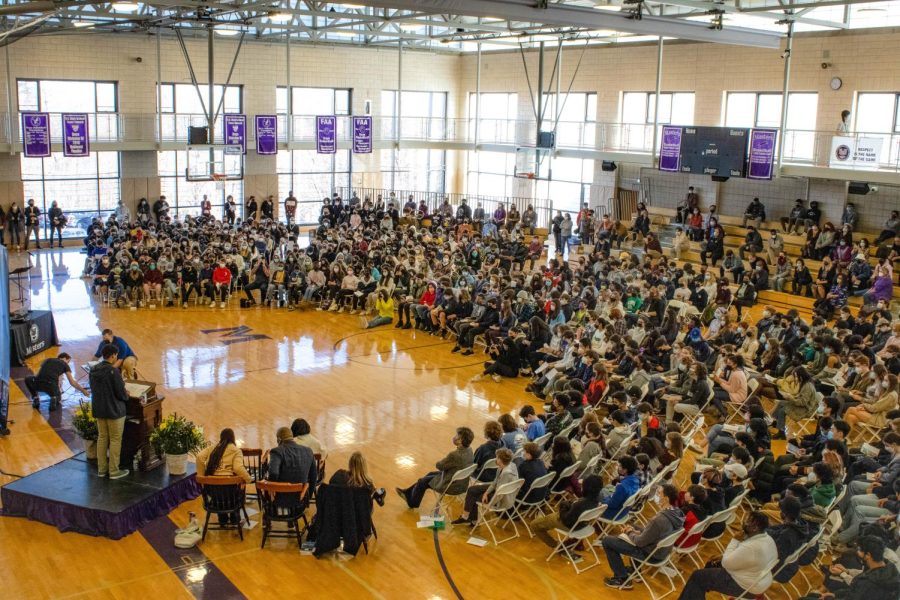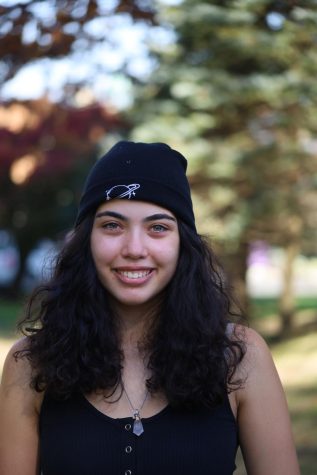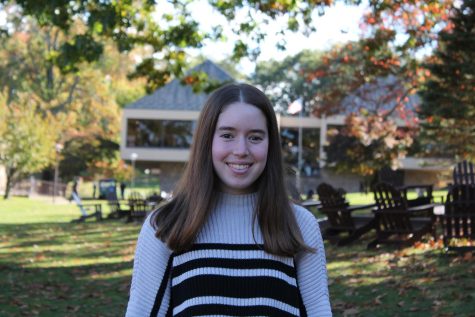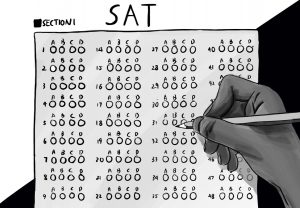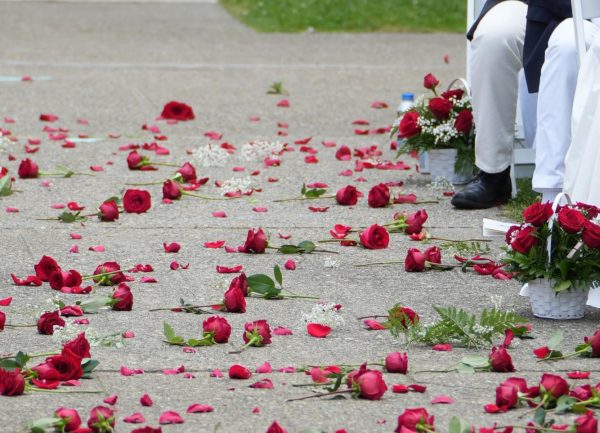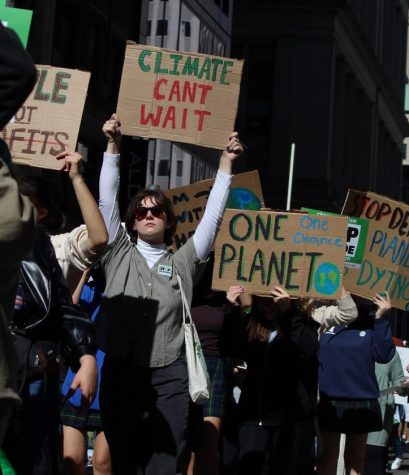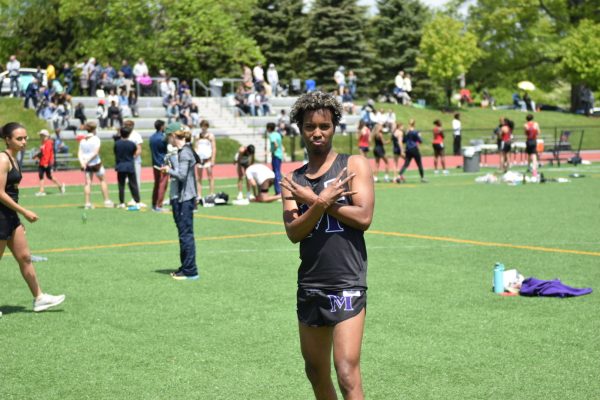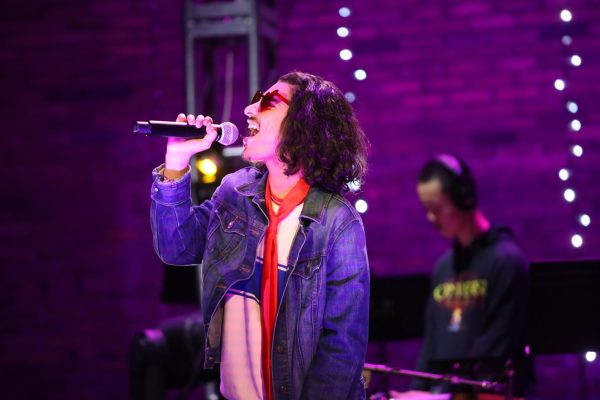Masters celebrates first MLK day since 2020
Students gather in the Maureen Fonseca Center to participate in MLK Day events and celebrate the legacy of Dr. Martin Luther King Jr.
March 11, 2022
On Friday Feb. 18, the Masters community came together to commemorate the life and legacy of Dr. Martin Luther King Jr. The annual MLK Day events were delayed from their regular date in January “in light of the current surge in COVID-19 cases and the health-related guidance we’ve received,” according to Associate Head for Diversity, Equity and Inclusion Roland Davis.
This year’s theme, “The Beloved Community: Building Bridges Across Difference” was inspired by Dr. King’s vision for communities to embrace justice, love and equality. The day’s events are an opportunity for the Masters community to share personal experiences and discuss topics, such as race, gender, culture and sexual orientation.
The day began with an all-school assembly in the Fonseca Center, which opened with a performance from sophomore Sage Weinstock singing “Lift Every Voice and Sing” (The Black National Anthem). Weinstock was followed by performances from 1877: Band Edition, MUSE and the Justice Choir.
“In addition to the day being an opportunity for reflection, it will also be an opportunity to learn and grow as a community,” junior Kuokor Ashie said.
Head of School Laura Danforth echoed Ashie and said, “I hope we feel more connected to one another, more committed to working through our differences and listening deeply to one another, even if you don’t agree with the person who’s speaking, and standing in a circle that includes everyone.”
Amy Bass, professor of sports studies at Manhattanville College and author of One Goal, the inspirational story of a soccer team in Lewiston, Maine, was the featured speaker.
“The Blue Devils [soccer team] made this improbable championship run in one of the whitest states in America, in a city that hadn’t talked about hope for a very long time… The team didn’t tolerate difference, they didn’t embrace difference, they capitalized on it,” she said.
After watching the film The Road to Justice, producer Andre Robert Lee spoke about the importance and process of making the film.
Associate Director of Diversity, Equity, and Inclusion Selas Douglas said, “We got a chance to really experience, in a way that highlighted a number of different types of experiences for folk, as well as communicate with perspectives that we don’t always get to see as part of our lived experience.” He continued, “Connecting to the history and the past I think helps to understand our current context so it’s really important for us to be able to do that if we are going to be who we like to be. ”
Students and faculty attended workshops in the early afternoon. There were nineteen different workshops which were led by community members.
Junior Demi Oni who attended “The History and Politics of Black Hair” workshop, led by Davis, said, “It’s something to be proud of, to have Black hair, and you should make sure not to make the stereotypes affect you, and be proud of your hair, your heritage, whatever your hair means to you, it’s yours to do whatever you want with it.”
The Poor People’s Campaign, a national call for moral revival started by Martin Luther King Jr. in 1968, demands social justice for poor people in the United States. Representatives from the Poor People’s Campaign, Karen Collins and Arelis Figueroa, led one of the workshops.
The day concluded in the Claudia Boettcher Theatre with a parliamentary debate on the legalization of illicit drugs in the United States. Owen Edelson ‘23, Xavier Rolston ‘24, Carlo Asam ‘24 argued the pro-side of legalization, while Arjun Ratan ‘24, Jessie Xie ‘24, Mahlet Messay ‘24 argued the con-side of legalization.
“There’s still an enormous amount of injustice in our world today and it [MLK Day] is an opportunity for us to remember that, not only on his birthday and all month during Black History Month, but all-year-round,” Collins said.



